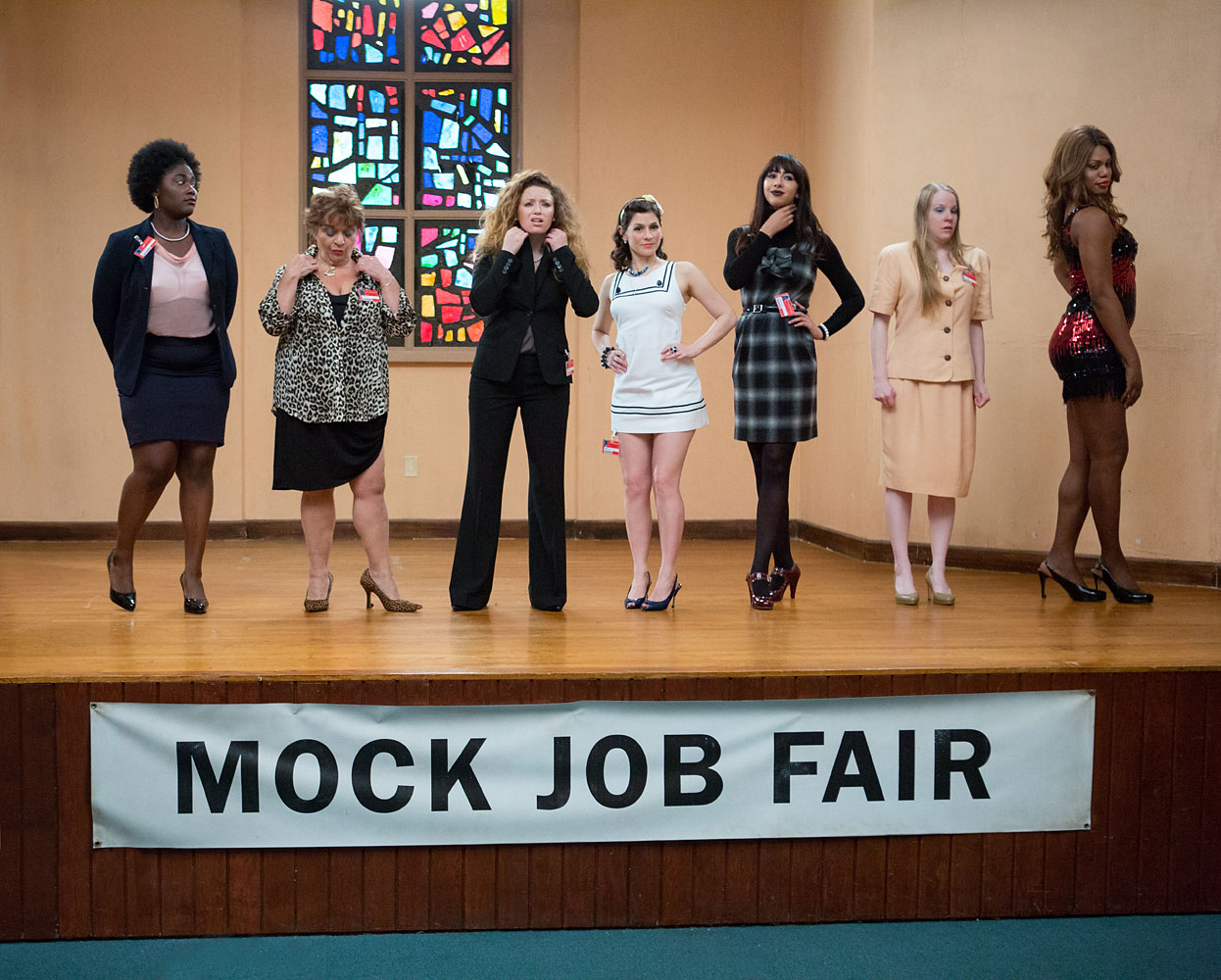
You have been sentenced to 13 hours: Netflix’s best original series, Orange Is the New Black, drops its full second season on the Internet tomorrow. I review the new season–well, the six episodes previewed for critics–in the new issue of TIME, and I can only share so much of that piece with you since it’s behind TIME’s paywall. (Hey, it’s not like Netflix gives it away for free either.)
I can smuggle you out a few thoughts, though. As someone who liked, then loved, OITNB‘s first season, I was not disappointed. Season 1 was one of those rare pleasures in TV, an out-of-the-blue, unhyped (at the time of its release anyway) great series–that thrilling sense of watching, through the early episodes, as what seemed like a good enough dark comedy unfurled its jaybird wings and revealed its sweeping ambition, emotional power, and deftly controlled voice. (For me, that was somewhere around the episode “The Chickening”–YMMV.)
You can’t get that sense of discovery a second time out. But what season 2 does give us is OITNB getting bigger, both in its cast and its themes:
Having built out dozens of colorfully named characters (Taystee, Yoga Jones, Black Cindy), the sprawling Orange is like Game of Thrones: Prison. In prison, after all, a few square feet becomes a world. One new subplot involves prisoners training cockroaches to carry cigarettes from cell to cell: in lockup, a hallway can be the vast Sahara and a bug a camel laden with riches. Like Thrones, Orange is partly a story of territory, allegiance and clans, here divided largely by race. This tension heightens with the arrival of Vee (Lorraine Toussaint), a magnetic, leonine recidivist who promises to restore the days when black women ran the prison. (The Latinas presently control the kitchen, Litchfield’s Iron Throne.)
What Jenji Kohan does in this series is a bit like painting landscapes on a grain of rice; she shows that with enough attention to detail, the tiniest canvas can capture the universe.
There’s a scene in the new season that other reviewers have quoted: Larry (Jason Biggs, feeling ever more vestigial in the story) tells Piper about waiting in line for hours for a “bagnut”–a combination bagel/doughnut. “I forgot what it’s like to have all that freedom to waste,” she says. In many ways, waste is the focus of OITNB: several of the new flashbacks, like past ones, emphasize the intelligence and skills of Litchfield’s women, lost to crime and lockup. But by being generous with its focus, developing an army of characters well enough that they could (and do) each anchor an episode, Orange Is the New Black wastes nothing.
More Must-Reads From TIME
- The 100 Most Influential People of 2024
- The Revolution of Yulia Navalnaya
- 6 Compliments That Land Every Time
- Stop Looking for Your Forever Home
- If You're Dating Right Now , You're Brave: Column
- The AI That Could Heal a Divided Internet
- Fallout Is a Brilliant Model for the Future of Video Game Adaptations
- Want Weekly Recs on What to Watch, Read, and More? Sign Up for Worth Your Time
Contact us at letters@time.com